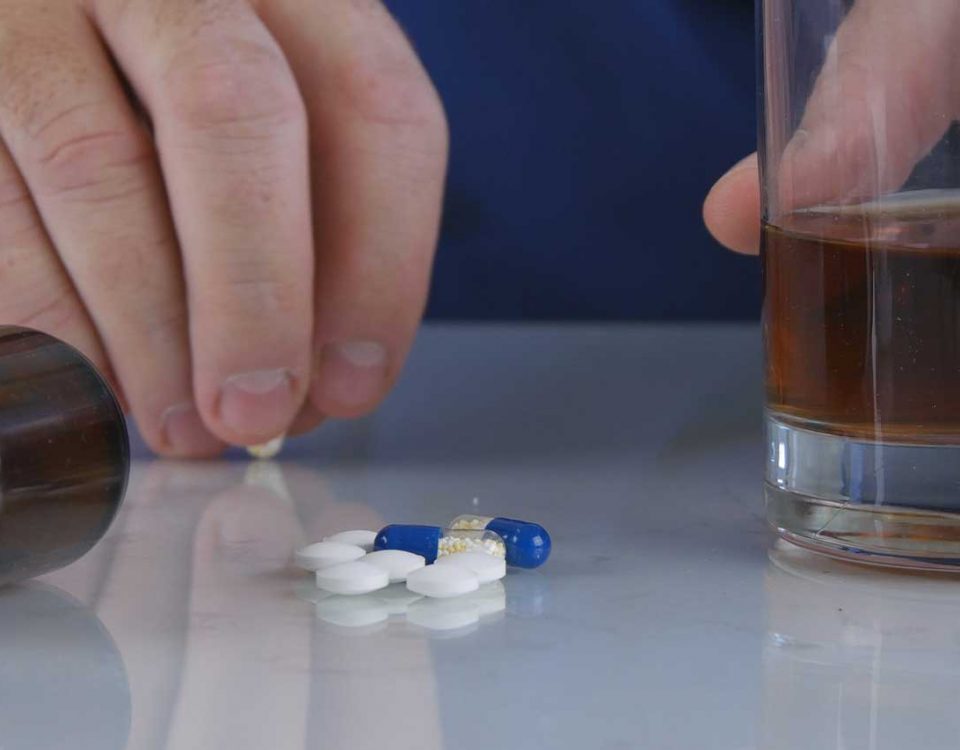Have you ever wondered, “How long does Baclofen stay in your system?” If yes, then you’re on the right track for safe medication use. Also known by brand names Lioresal and Gablofen, Baclofen is a muscle relaxer that’s prescribed to treat muscle spasms, pain, and stiffness caused by conditions like spinal cord injuries and multiple sclerosis. Baclofen is usually taken orally several times a day for individuals who don’t struggle to swallow pills, while those who can’t take the drug orally receive it through an implantable pump and catheter.
As effective as this medication is, understanding the duration of its presence in your body is crucial for ensuring safe and effective use. Below, our Banyan rehab experts will delve into the factors influencing the retention of Baclofen in the body and the associated implications for patients.
How Long Does Baclofen Take to Work?
Baclofen is classified as a central nervous system depressant in addition to being a skeletal muscle relaxant. It interacts with the inhibitory neurotransmitter GABA to calm nerve activity that causes muscle spasms to alleviate pain. Baclofen is similar to phenibut, another depressant that affects GABA receptors.
The time it takes for Baclofen to work varies from person to person and depends on several factors, including the dosage prescribed by your healthcare professional, the severity of your condition, and your body's response to the medication. Generally, Balofen starts to work within a few hours to a few days after the first dose. However, it’s essential to remember that the full medical benefits of Baclofen may take several weeks to become evident, especially when treating chronic conditions like spasticity or muscle spasms.
Side effects of Baclofen include drowsiness, sedation, disturbances in sleep, nausea, vomiting, problems urinating, constipation, and fatigue. It’s important to note some more extreme reactions to Baclofen, such as tachycardia, seizures, mania, and psychosis, all common withdrawal symptoms.
While this drug isn’t as addictive as opioids are, long-term use can lead to dependence, and misuse can develop a psychological baclofen addiction that’s linked to an emotional attachment to the drug and how it makes the user feel. Therefore, it’s important to receive medical support if you’ve decided to stop taking this drug. You must also avoid mixing Baclofen with alcohol or other drugs, as the interaction can be life-threatening.
How Long Is Baclofen In Your System For?
The half-life of Baclofen plays a major role in how long it lasts in the body. A drug’s half-life refers to the length of time it takes for half of the drug to be eliminated. It can take several half-lives for a substance to be metabolized and eliminated.
Considering the Baclofen’s half-life is anywhere from 2 to 4 hours, how long Baclofen stays in your system ranges anywhere from 10 to 20 hours after the last use. In addition to half-life, other factors that affect how long Baclofen lasts in your body include age, body mass, metabolism rate, and duration of use.
A slow metabolism rate can also extend the elimination process, whereas people with faster metabolisms might eliminate the drug quicker. Older people and people with a higher body mass tend to take longer to metabolize drugs. Additionally, if someone has been using Baclofen for an extended period, it takes longer to eliminate Baclofen because it accumulates in their body over time.
Does Baclofen Show Up on a Drug Test?
Baclofen does not usually show up in standard drug tests, as people aren’t typically tested for muscle relaxants. However, Baclofen does show up in a drug test that’s specifically administered for it. If Baclofen is specifically tested for, urine, blood, hair, and saliva samples may be used.
Baclofen drug test detection windows include:
- Blood: Baclofen can be detected in blood for up to 24 hours or less in most cases. This threshold will be wider in cases where overdose or excessive use occurs.
- Urine: Baclofen is primarily eliminated from urine, making it easily detectable in urine samples up to two days after last use.
- Saliva: Lioresal (Baclofen) is detectable in saliva samples for up to 24 hours or less. However, this form of drug testing is less common than urine drug tests when determining how long Baclofen stays in your system.
How to Stop Taking Baclofen Safely
The safest way to stop taking Baclofen is with the guidance of a medical team and a tapering schedule. While quitting cold turkey might seem like a good idea, stopping Baclofen can be a difficult process to get through safely without medical support. Withdrawals are often uncomfortable enough to encourage relapse in hopes of mitigating the discomfort.
As you can imagine, this can make the recovery process difficult. Patients undergoing medical detox at our Banyan rehab locations are placed on a tapering schedule, during which they receive medicated assistance (as needed) to mitigate withdrawals and make the process more comfortable. These individuals receive 24-hour care and supervision to ensure their safety, comfort, and success.
Following detox, depending on the substance in question, patients can then move on to illicit or prescription drug addiction treatment. Our rehab programs incorporate individual and group counseling and therapy to promote individual healing and accountability, as well as peer support.
No matter the substance use disorder you’re struggling with, our drug addiction treatment facilities are here for you. To find out more about our substance abuse services and locations, call Banyan Treatment Centers today at 888-280-4763 or contact us online.
Related Reading:




















